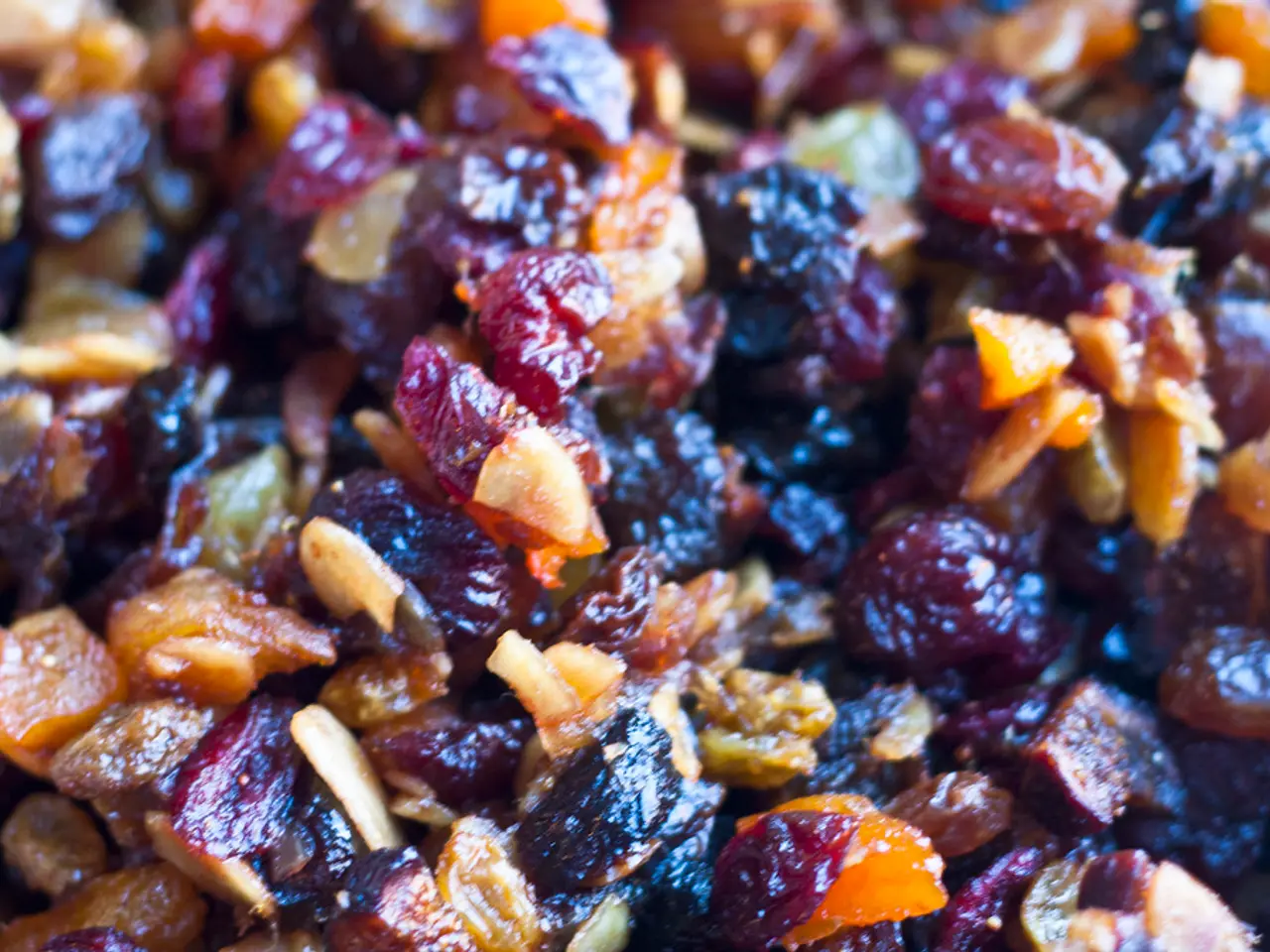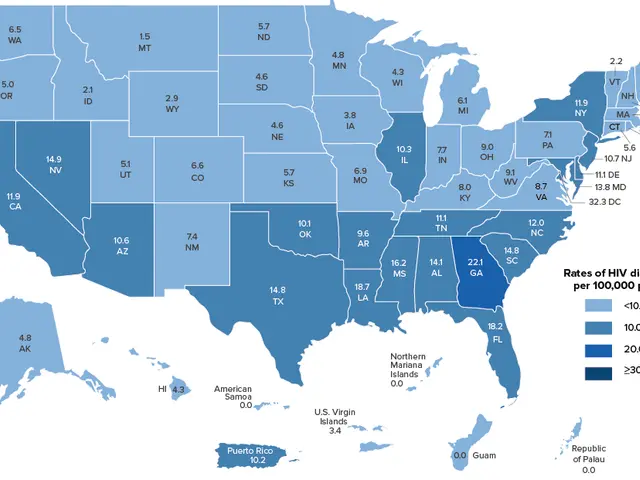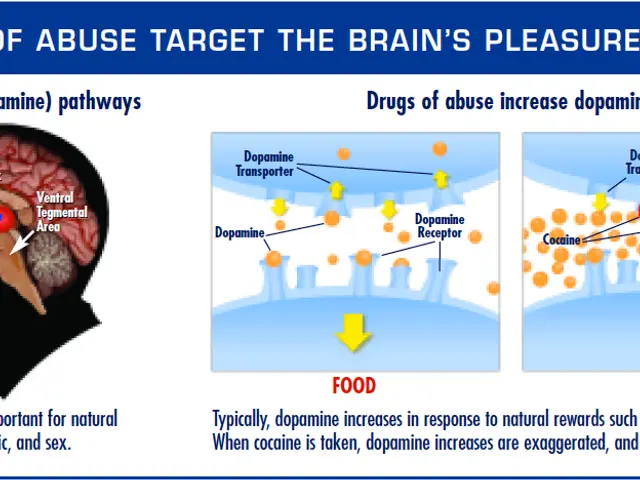High Cholesterol Levels: Lifestyle Adjustments and Natural Treatments
Living with high cholesterol can be a silent threat to your heart health. You've got the "good" HDL and the "bad" LDL types of cholesterol Yankee, and finding a balance is crucial for a healthy heart.
The "bad" LDL cholesterol can create plaque buildup in your arteries and increase your risk of coronary heart disease. This plaque can thicken over time, form clots, and potentially cause chest pain or a heart attack. Most folks with high cholesterol don't even realize it, but it can double the risk of heart disease!
Here are some natural methods that could help you improve cholesterol balance:
Lifestyle Changes
If lifestyle switches are your style, they could help you control those cholesterol levels. These changes can also reduce your overall risk of heart disease:
Get Moving
A little exercise goes a long way in reducing LDL cholesterol and overall heart disease risk. According to experts, try to get 30 minutes of physical activity each day for at least 5 days a week - that's just 2.5 hours a week! Any amount of exercise can boost your health. If you've got heart issues or other health concerns, be sure to chat with your doc about safe workouts.
Eat Smart
Fill up on fruits, vegetables, whole grains, and dairy for a heart-friendly diet. Unsaturated fats, found in fish, nuts, seeds, avocados, and vegetable oils, are great for your heart and can lower cholesterol levels. Cut back on saturated fats from fatty animal products and processed foods—only 7% of your daily calories should come from these bad boys. Trans fats found in packaged and fried foods should be avoided at all costs—they can raise cholesterol levels and increase heart disease risk.
Maintain a Healthy Weight
Extra weight can raise your chances of heart disease and high cholesterol. Even losing just a few pounds can bring health benefits! Regular exercise and a nutrient-rich diet can help you shed those unwanted pounds and lower your cholesterol levels. Choose nutrient-dense foods and limit high-calorie, empty-nutrient junk food.
Natural Supplements
Though marketing touts many supplements to battle high cholesterol, only a handful have substantial scientific backing:
Aged Garlic Extract
Garlic's been used medicinally since ancient times, and it might help lower blood cholesterol. A study from the Avicenna Journal of Phytomedicine reviewed 39 trials and found aged garlic extract could decrease total cholesterol and LDL by around 7% and 10%, respectively. As always, consult your doc before starting any supplements.
Flaxseed
Loaded with soluble fiber, lignans, and plant-based omega-3 fats, flaxseeds could impact artery health and cholesterol levels. You can use these nutty-flavored seeds in cooking, baking, or smoothies. A study in Nutrition and Metabolism found that a flaxseed drink lowered total cholesterol and LDL by around 15% and 17%, respectively. Milled flaxseed is a better choice because your body can absorb the nutrients better.
Soluble Fiber
Many Americans don't get enough fiber, which is important for healthy digestion and lowering LDL cholesterol. Soluble fiber, found in high amounts in oats, fruits, veggies, and legumes, can help you reach this goal. Strive for whole-grain breads and pastas, and limit “white” or refined grains. Fiber supplements can also help boost your fiber intake.
Red Yeast Rice Extract: Use with Caution
Studies show that red yeast rice extract may decrease LDL cholesterol by 22% and total cholesterol by 15% in 8 weeks. However, it can be tricky to ensure these supplements are safe and effective—some contain the same active ingredient as the cholesterol-lowering drug lovastatin, which can cause unwanted side effects and interactions. Consult your doc before trying red yeast rice extract, especially if you have heart disease.
Final Thoughts
Talk to your doctor about natural remedies best suited to your lifestyle and health conditions. Lifestyle changes, such as adopting a heart-healthy diet, regular exercise, and maintaining a healthy weight, are often recommended as part of a cholesterol-lowering treatment plan. Enjoy a balanced diet, stay active, and chat with your doc to protect your heart health!
- A balanced diet, rich in fruits, vegetables, whole grains, and dairy, can contribute to cardiovascular health and help lower cholesterol levels.
- Unsaturated fats found in fish, nuts, seeds, avocados, and vegetable oils are beneficial for heart health and can aid in reducing cholesterol levels.
- Overweight individuals may have an increased risk of heart disease and high cholesterol; even a modest weight loss can lead to significant health benefits.
- Engaging in regular exercise can help lower LDL cholesterol and reduce the risk of heart disease, with a goal of at least 30 minutes per day for 5 days a week.
- Trans fats, commonly found in packaged and fried foods, should be avoided as they can increase heart disease risk and elevate cholesterol levels.
- Aged garlic extract may help lower blood cholesterol levels, according to some studies; consult your doctor before starting any supplements.
- Flaxseeds, rich in soluble fiber, lignans, and omega-3 fats, can impact artery health and cholesterol levels; they can be used in cooking, baking, or smoothies.
- Soluble fiber, found in high amounts in oats, fruits, vegetables, and legumes, is essential for digestive health and lowering LDL cholesterol.
- Red yeast rice extract may help decrease LDL cholesterol by 22% and total cholesterol by 15%, but it can be dangerous due to potential drug interactions; seek medical advice before using it, especially if you have heart disease.







